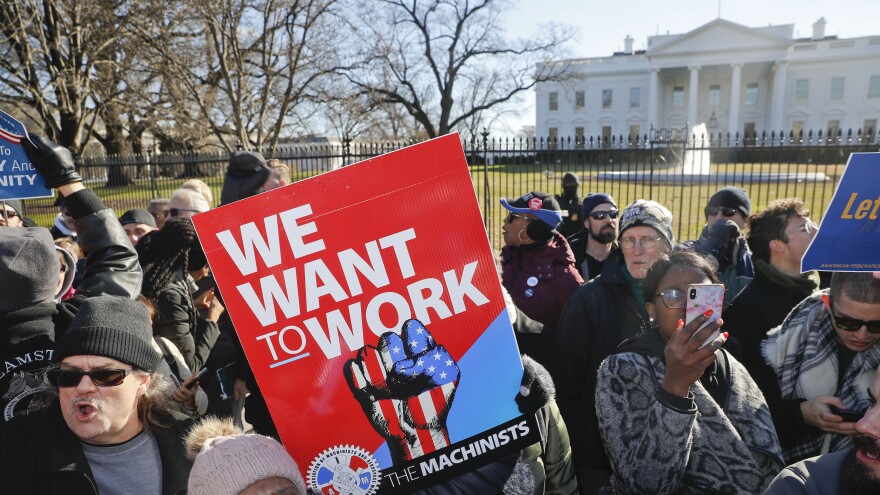The partial government shutdown is now the longest in history, as Saturday marks Day 22. The previous record was 21 days, set in the winter of 1995-96 when President Bill Clinton and House Speaker Newt Gingrich were at odds over budget cuts.
Congress went home for the weekend, as some 800,000 federal workers are on furlough, and many have now gone without their first paycheck. Mortgages are held up, security personnel at airports are strained, Coast Guard families line up at a food pantry, and a large majority of the country says they feel the shutdown is "embarrassing."
President Trump and Democrats have not been negotiating since the president abruptly walked out of a meeting on Wednesday. On Friday, he held off on declaring a national emergency as an end run around Congress. Still, the White House is looking for money it could shift around to fund wall construction under an emergency declaration.
Here's the latest on the shutdown and its impact:
Copyright 2021 NPR. To see more, visit https://www.npr.org.



